Fall Fire Safety Tips and Tricks: Stay Cozy!
- Field Service Management
- 9 Min Read
Fires can happen anytime but occur more frequently during the fall and winter. In these months, fire hazards in your home or business stem largely from heating the space. According to the American Red Cross, there was even a drastic increase in US house fires during this time.
This blog will explore simple yet essential fall fire safety tips tailored for the autumn season and bring fire safety to your home to remain safe and snug throughout the festivities. Let’s dive in and make this fall, fire safe and enjoyable!
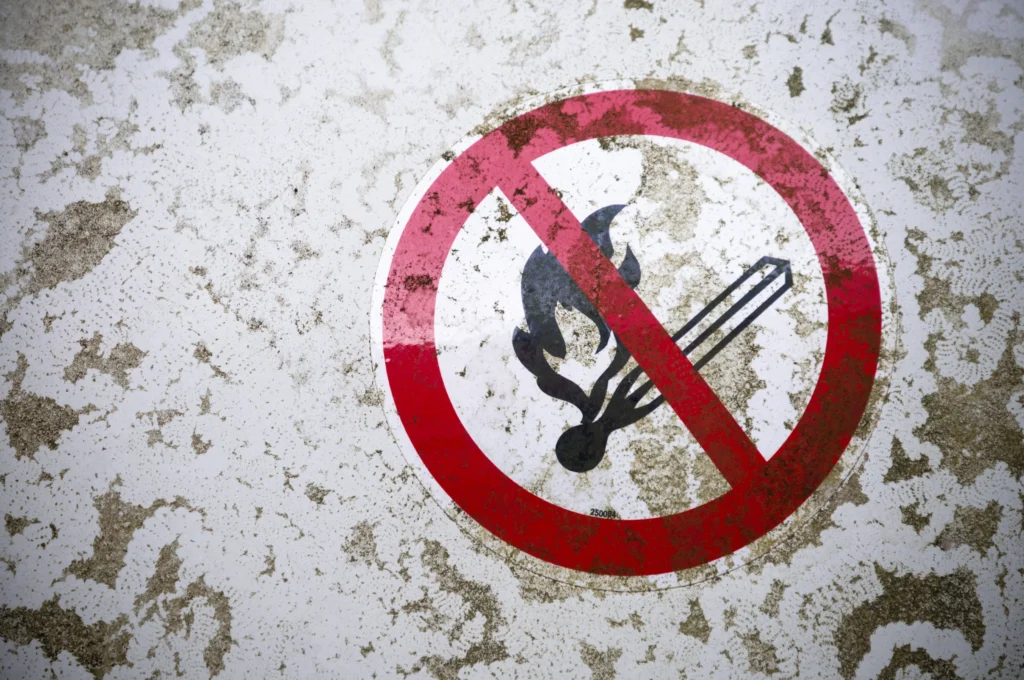
Here What We Cover
5 Safety Measures to Take When There is a Fire
As per the NFPA, the primary reasons behind fires in commercial buildings are usually:
Cooking Equipment
Heating Equipment
Electrical and Lighting Equipment
Smoking Materials
Arson
Let’s look at some fire prevention techniques that you can incorporate to protect yourself from fire hazards.
1. Avoid Clutter
Clutter can quickly turn into fire fuel, making it essential to keep your surroundings tidy and free of combustible waste. This waste includes cardboard boxes, paper, debris, yard trimmings, and fallen trees. Fire laws strictly prohibit keeping these items around except in designated disposal areas. If not properly handled, this clutter can pose a severe fire hazard for your building.
Additionally, having clutter around can block exits and evacuation routes. It can also make it harder for firefighters to do their job during a fire emergency. Owners should ensure the building is free from obstructions and keep hallways clear for safety reasons.
2. Be Aware of Ignition Sources
Various items can increase the risk of fires; these ignition sources include heaters, lamps, and other objects that can become hot or produce flames, such as exposed cords or electrical outlets. Other things that can lead to open flames include matches, cigars, cigarettes, signal markers, flaming food or drinks in restaurants, decorative devices, candles, lanterns, gas heaters, and barbecue pits.
3. Avoid Overloading Circuits and Extension Cords
In many office buildings and commercial spaces, there are often lots of cords because of the many electronic devices like computers, printers, and monitors. This can lead to overcrowded outlets. Especially in the fall, when portable heaters might be added, there could be even more cords, which increases the risk of overheating.
To prevent this, property owners should advise people to ensure plugs fit securely into outlets and avoid loose connections. Loose connections can cause overheating and potentially start a fire.
4. Have the Correct Safety Equipment
Building owners should ensure that appropriate safety equipment is provided for the property. They should also always be on the lookout for fire-prone situations and be prepared if one ever happens. They can do this by first following the simple steps of checking their smoke alarms, replacing their batteries, and checking if their extinguishers are in working condition.
5. Regular Inspections and Testing
You should regularly conduct inspections and test your fire alarm systems to keep people safe from any situations. The NFPA 72 regulations state that residents are allowed to inspect their systems and are advised to do them on a half-yearly basis.
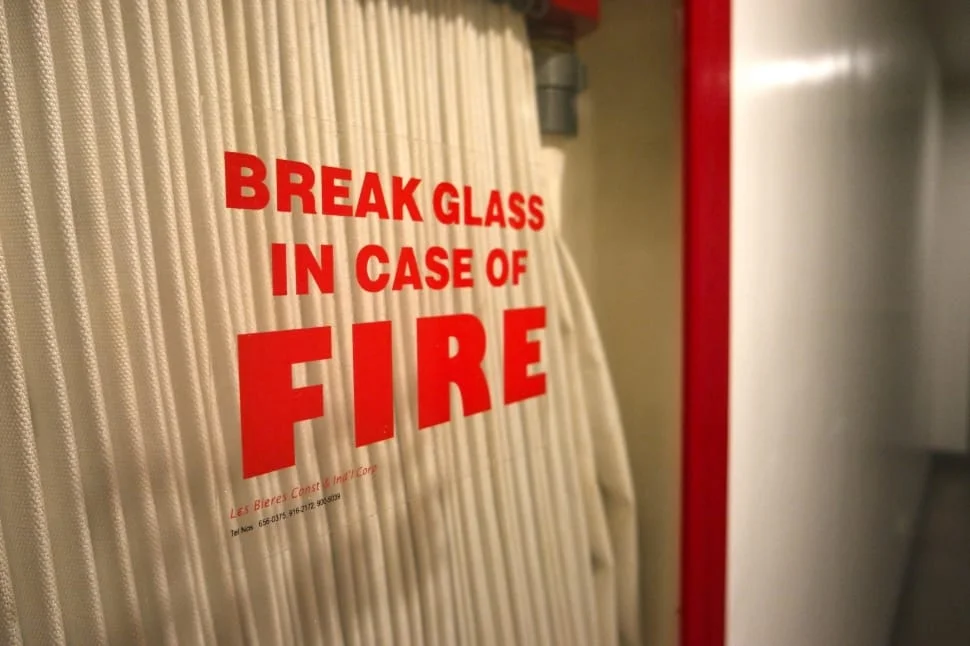

Use our free estimate template now
Make winning quotes in minutes—for any industry and any job.
Here's How You Can Start Developing A Fire Safety Plan At Your Home
Flat rate price = Hourly Rate x Repair Time in Hours + Material Cost +( Material Cost x Part Mark-up)
Let’s see an example of flat rate pricing calculation. Consider the following
Hourly rate: $200
Time: 2 hours
Material cost: $150
Material MarkUp: 25%
Now, applying the formula the flat rate total should equal 200 x 2 + 150 + (150 x .25) = $587.5
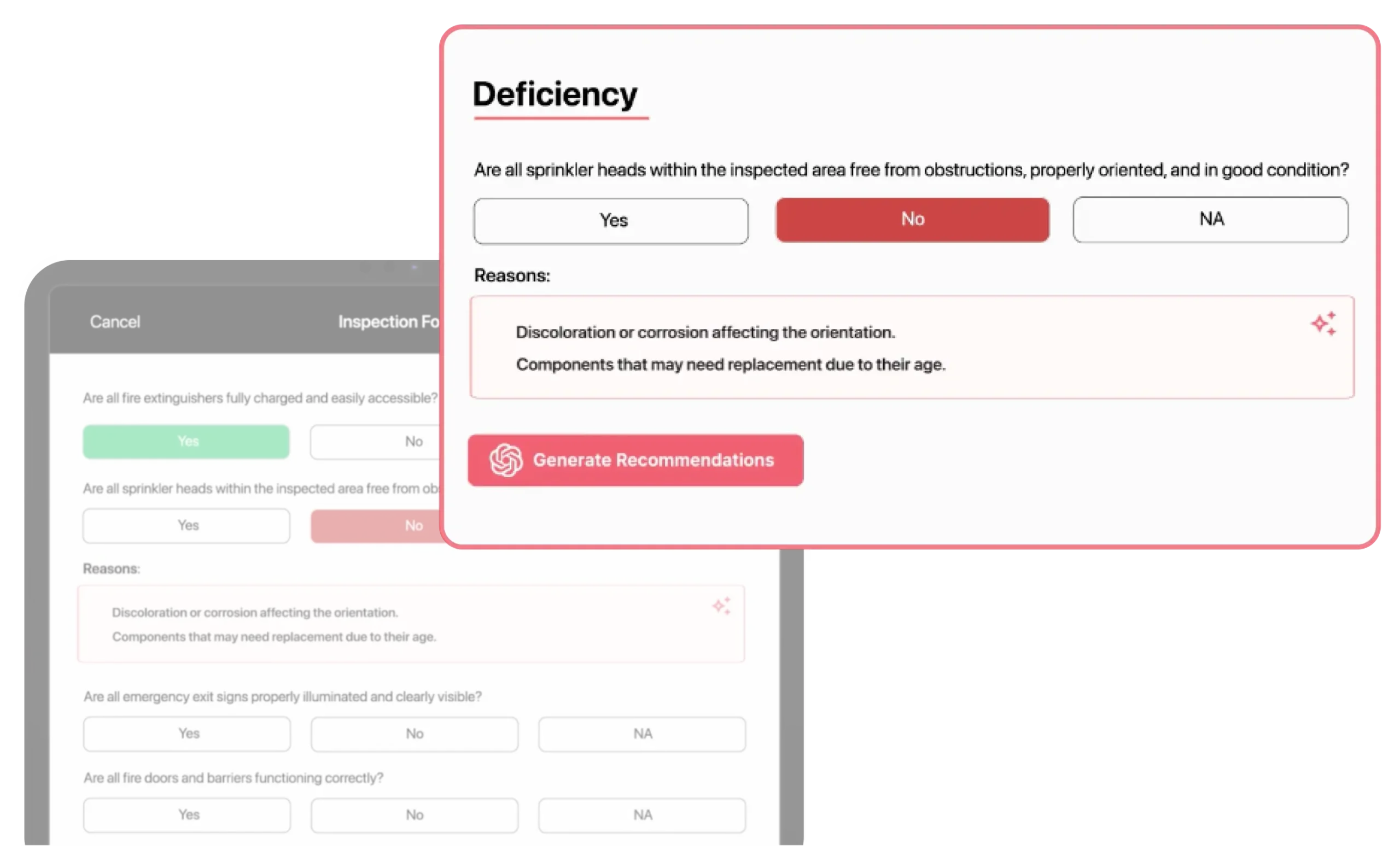
Home Heating Hazards
Home heating can cause fires through various mechanisms, primarily due to malfunctioning equipment, human error, or neglect.
For central heating systems, it’s a good idea to have a professional check them once a year. This is especially important for gas heaters, where working carbon monoxide alarms are crucial. Test smoke detectors monthly to ensure they’re working. Also, keep anything flammable away from your furnace to avoid accidents.
Enhance fireplace safety by using screens or glass doors to contain sparks and hot ash. Contain furnace and chimney fires using a fireplace screen as they produce toxic fumes harmful to inhalation. Only burn seasoned wood in your fireplace or woodstove and avoid overloading it with too much wood. DON’T LEAVE FIRE UNATTENDED!
If you’re using space heaters, remember to keep them at least three feet away from anything that could catch fire. Don’t use them to dry clothes; always remember to turn them off when you’re not using them or going to sleep. And, of course, keep anything flammable away from the heaters to reduce the risk of fire.
These simple precautions can help keep your home safe and prevent fires during the colder months.
Replace Batteries in Smoke Alarms & Locate Fire Extinguishers
When you set your clocks back for summer, it’s a good time to check your home’s safety systems. Replace the batteries in all smoke alarms and carbon monoxide detectors. Keep your fire extinguisher fully charged and in its original place. If you don’t have one, consider buying one.
Remember to:
Change batteries in smoke and carbon monoxide detectors.
Test smoke detectors monthly to ensure they’re working.
Check that all fire extinguishers are charged and working.
Have enough smoke detectors in your home.
Make sure everyone knows how to use a fire extinguisher.
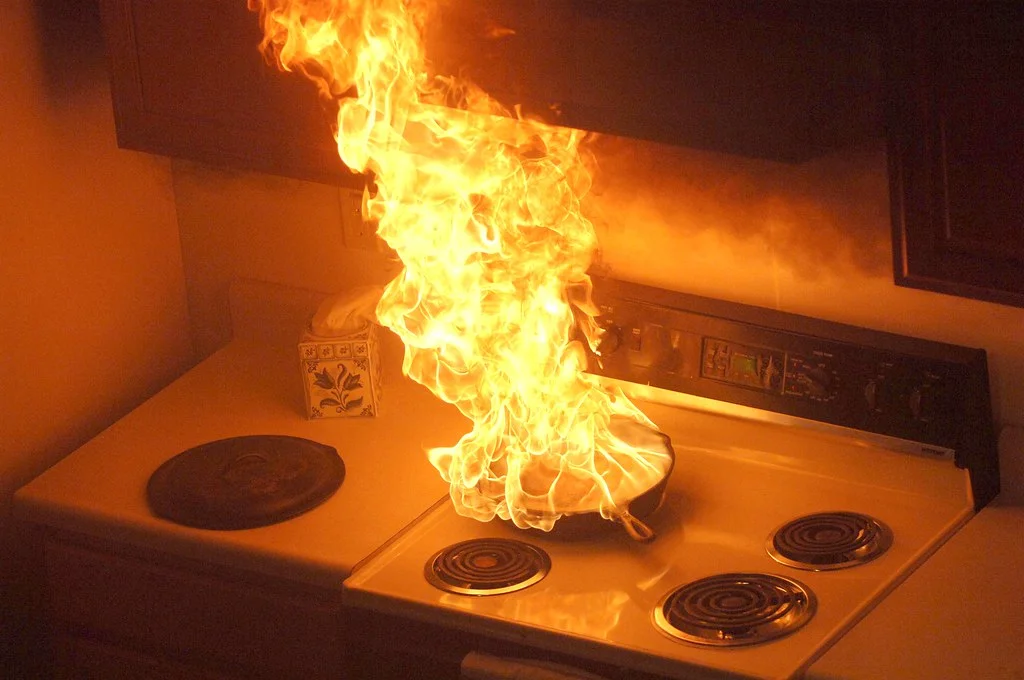
How to Store Combustible Waste
There are a few potential disadvantages of flat rate pricing to consider as well. One is that it can sometimes be challenging to set the right price. Customers may choose a competitor over you if the price is too high. Hence Flat rate pricing can be difficult to implement effectively, as it requires meticulous planning and analysis.
Another potential downside is that flat rate pricing can sometimes be inflexible. If costs go up or down, the business may be unable to adjust its prices accordingly. This could lead to lost sales or revenue.
There are also cases when to meet customer expectations; you might have to over-deliver on a project without any extra compensation, which may include a certain number of changes or revisions during the job. But you won’t get any extra money for the work.
Now that you know both sides of the coin, let us move to the important question.
Get posts like this in your inbox.
Keep learning how to run a 5-star business with our bi-weekly newsletter.
How to Treat a Burn
The right answer to this question is: it depends. There is no doubt that customers will be satisfied after the job is completed at a flat rate. Because they are guaranteed a fixed price, or one that is very close to it, unless something very unexpected occurs, the tough moment is removed between you and the customer.
But take the case of SAAS companies like ZenTrades that provide field service management software solutions to industries plumbing, HVAC, fire, electrical, etc. We reject the idea of a one-size-fits-all strategy. Larger organizations might need more features or bandwidth than your flat rate subscription plan can provide, while small business owners might choose software that provides a more affordable beginner plan. Hence trusted companies like ZenTrades have customized pricing. If you are a field service contractor, book a free demo with ZenTrades and get customized software at a customized price. In the same way, many SAAS and IT service companies prefer flexible pricing over flat rates.
Whereas if you are into field service industries like HVAC, plumbing, or electrical then, flat rate pricing can be the better option. But make sure you’re covering all of your overhead costs, such as non-billable hours, supplies, and insurance when figuring up your flat rate charges for your business.
Overall, flat rate pricing can be a helpful pricing strategy for businesses. It can be easy for customers to understand, and it can encourage bulk purchases. But businesses will need to be careful when setting prices to avoid losing sales or revenue.
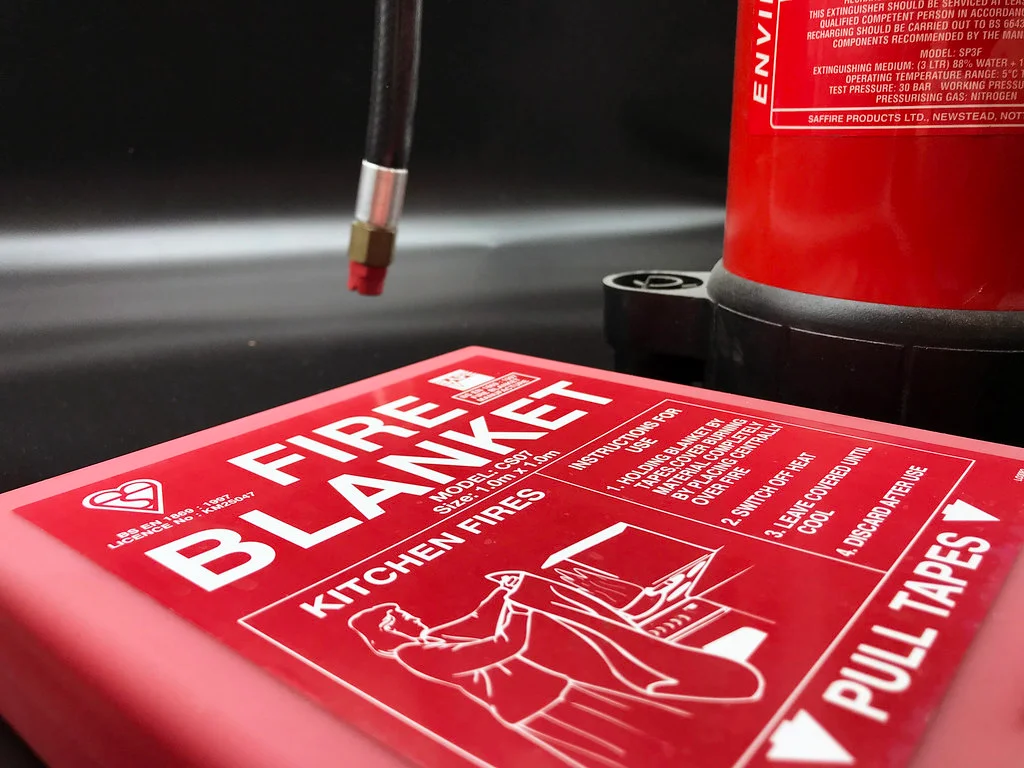

Explore a better way to grow your business. Book a free demo now!
Get organized, win jobs, and wow customers.
Book A Free Demo with ZenTrades Today!
Related Reading
Why Your Field Software Management Software Needs QuickBooks Integration
ZenTrades Why Your Field Service Management Software Needs QuickBooks Integration Read More Request Demo...
Read MoreZenTrades How To Manage Electrical Service Agreements Like...
Read MoreZenTrades The Best 5 Jobber Alternatives In 2023...
Read More

